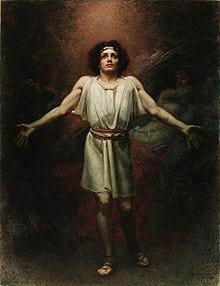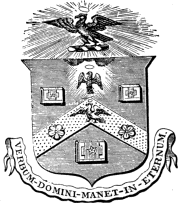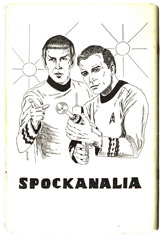I was looking recently at how different writers have recently sued OpenAI, makers of ChatGPT, arguing that ChatGPT infringes on their copyright. There's a lot I could say about ChatGPT and what creativity and writing are, and I'll be talking about that in another blog post in a few weeks.
But for now, I'd like to talk about copyright itself. Copyright is a modern thing. It’s a good thing for what it is, but it’s a recent addition to what storytelling is, and it’s changed storytelling dramatically - in the opposite way from what some people assume.
Before the modern era, copyright didn't exist. Stories were frequently borrowed, changed, and remixed.
People across Europe told versions of the same fairy tales, with the tales told by one teller differing somewhat from the tales told by someone in the next village. Someone - whether a random person or a professional minstrel - would hear a tale, add on a new bit, and tell it himself later. Sometimes this would be a slight change; sometimes it would be completely recasting the story or telling a new story borrowing from the old one. This's how we get various tellings of the same Greek myths from different poets or playwrights, and this's how we get numerous different versions of the same fairy tales which folklorists like the Brothers Grimm tried to reconcile.

Or, sometimes, a single epic would be developed in different directions. It happened with tales about Charlemagne's knights. Today, most of it has been largely forgotten (except perhaps for the "Song of Roland"?) but it used to be an extensive epic sequence.
What we do remember is the epic sequence about King Arthur. The King Arthur mythos seems more consistent because Thomas Malory went to great lengths to assemble most of the legends in his Mort d'Arthur, but even then he leaves out most of the Welsh stories in favor of the later French version which turned Arthur into a chivalrous High Medieval king. The whole concept of the Holy Grail arose later than that, with different versions in which different knights - frequently invented by the minstrel in question - were the only one worthy enough to find the Grail.

The best modern-day analogy to this would be fanfiction. Each fanfic gives a different spin on the source material, whether slightly or very different, casting the story in a different light. It may be telling the same core conflict as the original story, or might reinterpret it to a totally different conflict. It might develop one aspect of a character more, or totally reinterpret his character, or sideline him in favor of an original character.
All of this was commonplace in the Arthurian cycle. Characters such as Glewlwyd (Arthur's gatekeeper, in the Welsh tales) dropped out in favor of newer characters like Lancelot, who was then reinterpreted with more faults (such as Lancelot's affair with Guinevere). We can say that one form of the Arthur mythos was historically more original (probably, a warrior-king who defeated the Saxons at Mt. Badon). But, unlike fanfiction, this's a mere historical curiosity. If you want to read the "primary version" of King Arthur, Nennius's chronicle is about the last place you'd go. I'd probably send someone to Malory's Mort d'Arthur, but even that has wildly different emphases from a lot of other versions.
So with Arthur, like most other stories, we can't really say that any one form is canonical.
An individual writer - whether Chretien de Troyes the bard who invented Lancelot, or Thomas Malory who assembled most of the legends in one book - wasn't taken to have any right in the stories. Malory hoped to have his name associated with them; he put in an author's note asking readers to pray for his release from prison. (That is, in fact, the one thing we know for sure about his life.) But if an author was to get money from his stories, he'd probably get it from live performances or a rich patron who commissioned his works. After printing was invented, an individual printer might strike a deal to pay an author, but that wasn't considered an obligation. As late as the late 1800's, American publishers were regularly reprinting Dickens' books without any authorization or payment.
Into this world of storytelling came the idea of copyright.
It came from monopolies. In early modern Europe, a monopoly was an exclusive government privilege given to someone. For example, Henry VIII of England gave a monopoly on silk to Antonio Guidotti, who organized the first silk production in England. Governments would often give them out with less excuse: Queen Elizabeth of England gave monopolies on salt and garment-starch and many other things to people who paid her money. A similar monopoly on printing was given to the "Stationers' Company," who also agreed to censor the press on the government's behalf.
This system lapsed or was torn down by Parliament, acting on behalf of people who were upset about monopolists raising prices and censoring publications. Finally, in 1710, the Stationers' Company succeeded in getting a new sort of monopoly on books with the "Statute of Anne": this time, the monopoly would rest with the author of the individual work and whatever printers he chose to license; and it would run for a fixed term of 14 years renewable once. It cited the benefit to authors, and the benefit to the public from encouraging new authors.
And, these benefits are quite correct. Writers have made a living off public acclaim without fishing for commissions from rich sponsors. Few writers have grown rich off this, but many writers have gotten more money than they would otherwise, and the public has benefitted from their works.
On those fundamental principles, copyright has spread across the world. It rests in the author, for some definite term, after which the work will go into "the public domain" without any copyright.
There're some people who say that copyright is naturally rightfully the author's just like any other sort of property. That's not exactly a new idea; even the Continental Congress said in 1783 “nothing is more properly a man's own than the fruit of his study.” But, historically speaking, that hasn't been the case. That's contrary to how storytelling has typically and naturally worked. Copyright itself was carved out of the public domain.
Copyright has expanded since it began.
One major expansion is that it now lasts a lot longer - in the United States, seventy years after the author's death.
But also, the original Statute of Anne, as well as the original US Copyright Act of 1790, didn't mention derivative works. Under them, fanfiction was legal. If Chretien or Malory had copyrighted their Arthurian works under those terms, everyone else would be just as free to remix new Arthurian stories as they were in real pre-copyright history. I'm not aware of when this concept entered copyright law.
Restricting derivative works under copyright has significantly changed how stories develop. Many people have pointed out how the Disney corporation itself derived most of its stories from public-domain books and fairy tales, but jealously guards its copyright against people making derivative works of its own stories. This's absolutely correct. Copyright doesn't just let them do that; it expects that they and other copyright holders will want to do that.
The printing press did change how stories spread, but it's clear that people do still want to remix and spin classic tales. Just look at internet fanfiction. Fanfiction is likely mostly copyright violations, but most authors and publishers are willing to turn a blind eye. And, it's exploded. Fanfiction.net claims 847,000 fics for the Harry Potter books, 222,000 fics for Twilight, 80,500 fics for Percy Jackson and the Olympians, and that's just one large site and the three most popular fandoms.
(Yes, some fanfiction is probably protected parodies or commentary, such as Alice Randall's Gone with the Wind fanfiction The Wind Done Gone. But hardly anyone has tested that theory in court; even Margaret Mitchell's estate dropped its suit against Randall after a preliminary ruling. So, we don't know how far it would go.)
Without the fear of copyright enforcement, fanfiction would (I'm sure) be a much bigger thing. It would also be a higher-quality thing, without finances and the legal standing and respect of original fiction driving better writers to original fiction.
Is copyright, in some sense, a good thing? Yes, absolutely. It’s gotten many authors sizeable amounts of money. I know, as an author who's written many essays (including this blog) and attempted to write many books, I'm glad to have it even though I’ve gotten hardly any money from it.
But, historically speaking, copyright is a new thing. It's historically been a limited privilege when it was anything. It gave new income to authors, but it also choked off an ancient tradition of multiple authors telling the same story in different ways across generations. Some people are fine with this. Personally, I wish copyright were different.
At least, though, people should be aware of how copyright came to be. And in an age facing new questions about the extent of copyright - such as with the Internet and with generative AI, which I’ll be talking about in a few weeks - I think knowing copyright's history can help us.






This paper is neat, or at least the 70% of it that I swiftly read was: https://www.bu.edu/law/journals-archive/scitech/documents/deneau_article.pdf
It says the modern derivative-works distortion of the copyright monopoly only showed up in statute in 1976. I need to look through the case law to see how well it was established before then, but it's clear that it was NOT established in 1870.
So this is a surprisingly recently development. I say "surprisingly" because, if it wasn't law before 1976, that *seems* to imply that commercial fanfiction was both legal and copyrightable when the first issues of SPOCKANALIA hit the early cons. And (as a Star Trek fan fiction producer and Star Trek fan fiction history-study-er), let me assure you that nobody in our fandom treated it that way in 1966-76.
Protection for derivative works of the sort that contain verbatim portions of the original work (e.g. music remixes, or modified versions of software) may fall out of regular copyright protection, since it involves copying passages. If people could make as many copies of this sort of derivative work as they want for free, copyright would be toothless: people could just make slight modifications and copy it for free. And if this sort of copying involved requires permission, the only way you could make this sort of derivative works is stitching together portions of legally bought copies, which would be quite impractical.
The sort of derivative works you discussed are derivative in a much weaker sense. Essentially the question is how fictional characters came to be copyrightable (https://en.wikipedia.org/wiki/Copyright_protection_for_fictional_characters has some discussion, it seems to come from court decisions, rather than explicitly from statute), and whether they should be (IMO no). Ideas generally aren't copyrightable, only the concrete form is; AFAIK retelling or summarizing a story in your own words generally isn't a copyright violation, if not for copyright on characters. Copyright on characters seems like a weird exception, affording copyright protection to what I'd consider an idea, and what consists of so little information (a name and perhaps just a few bits' worth of attributes) that it wouldn't generally be copyrightable.